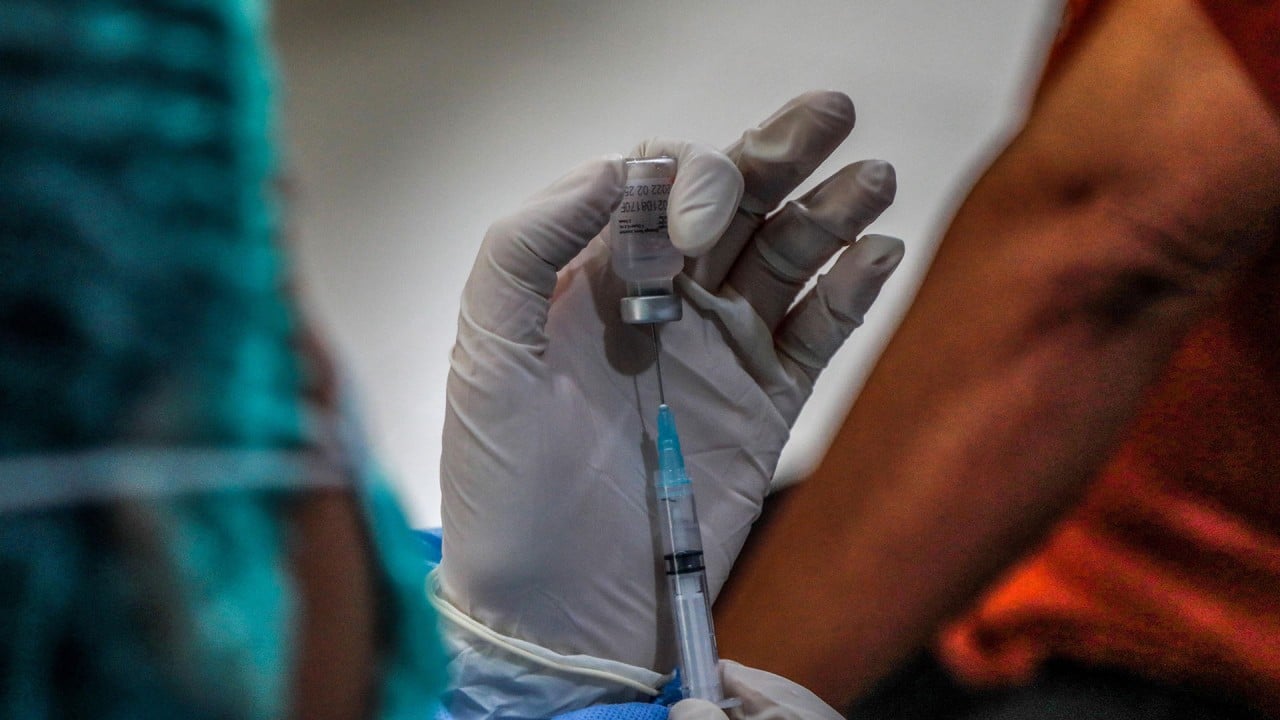
Can vaccines keep long Covid at bay? The answer is still a maybe
- Studies in Israel and the UK suggest vaccines protect against long-term impact of Sars-CoV-2 infection
- Contradictory results, as revealed in another UK preprint, highlight need for more data to arrive at a firm conclusion
The symptoms of long Covid range from fatigue, breathing difficulties, insomnia, joint or chest pain, and brain fog, to more serious problems such as organ damage – including the kidneys, lungs, pancreas and heart.
The World Health Organization (WHO) defines long Covid as having these conditions three months from the onset of Covid-19 and lasting for at least two months, with no explanation from alternative diagnoses.
Scientists are still trying to figure out the causes. Some suggest long Covid may have something to do with the organ damage caused by Sars-CoV-2, the coronavirus behind Covid-19, while others believe it depends on the immune response of an infected person.
Such conditions can develop even among asymptomatic or mild cases of Covid-19, and they can relapse even if the symptoms seem to be gone.
To what extent vaccines can prevent or reduce such conditions is under research, but there are no final conclusions yet.
What is ‘long Covid’? Hongkongers share mystery post-illness tales
The latest study by a group of researchers in Israel suggests that fully vaccinated individuals were less likely to develop long Covid symptoms, though the size of the survey was relatively small.
The study, which has yet to be peer-reviewed, invited individuals who were PCR tested for Sars-CoV-2 infection at several participating hospitals between March 2020 and June 2021, to fill out an online questionnaire if they had long-term symptoms.
Of the 951 previously infected individuals who filled out the survey, 67 per cent were vaccinated.
The most commonly reported long-term symptoms of these respondents were fatigue, headache, weakness, and persistent muscle pain.

Around 5.1 million Israelis were deemed to be fully immunised against Covid-19 after receiving two doses of the Pfizer – BioNTech messenger RNA vaccine by last May.
China’s top Covid-19 expert urges stronger defence against variants
The results were in line with a previous study, carried out at King’s College London and published in The Lancet in September. Scientists there also found the chances for long Covid were lower after two doses of vaccines from Pfizer/BioNTech, Moderna, and Oxford/AstraZeneca.
“We found that the odds of having symptoms for 28 days or more after post-vaccination infection were approximately halved by having two vaccine doses. This result suggests that the risk of long Covid is reduced in individuals who have received double vaccination,” the study said.
The findings were based on self-reported symptoms on mobile apps between December 8, 2020, and July 4, 2021. The respondents included 6,030 vaccine breakthrough cases after the first dose and 2,370 after the second one.
However, the data so far is insufficient for scientists to reach a firm conclusion. The issue is further complicated by contradictory results, as reported from another study by a group of experts in Oxford who used data from a US electronic health record.
After tracking 9,479 vaccinated individuals diagnosed with Covid-19 and about the same number of unvaccinated cases for six months, the researchers concluded there was not much difference between the two groups.
It also found that for people over the age of 60 with breakthrough Covid-19 infections, vaccine protection against complications including long Covid was weak or nonexistent.
“The absence of a protective effect against long-Covid features is concerning,” their preprint released on medRvix.org in November read.
The subjects in the study received vaccines from BioNTech, Moderna or Johnson & Johnson.



